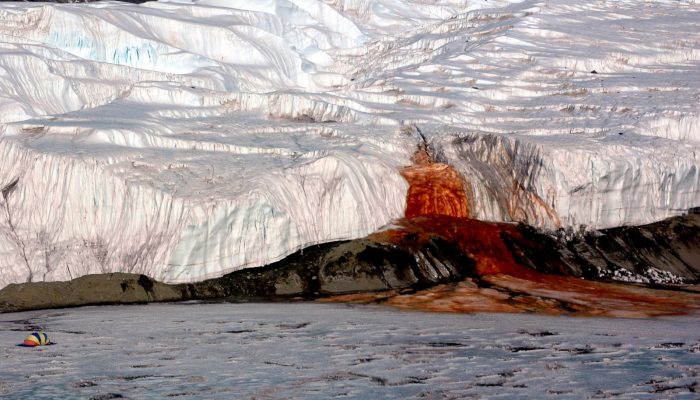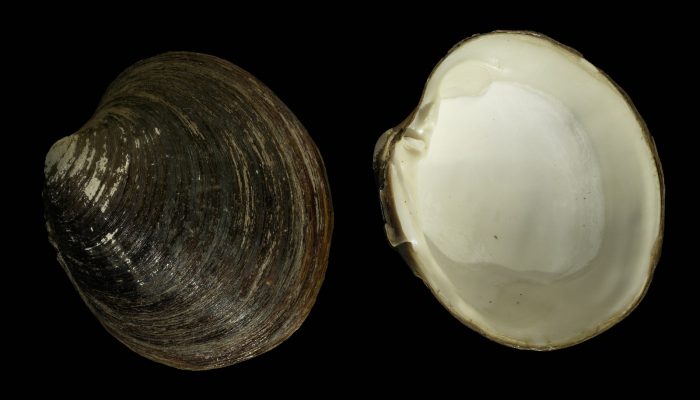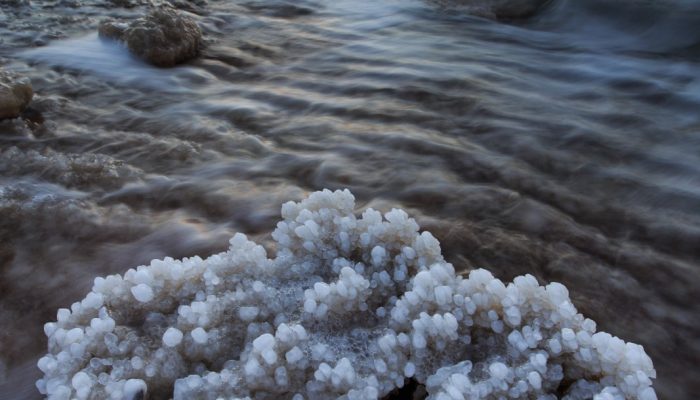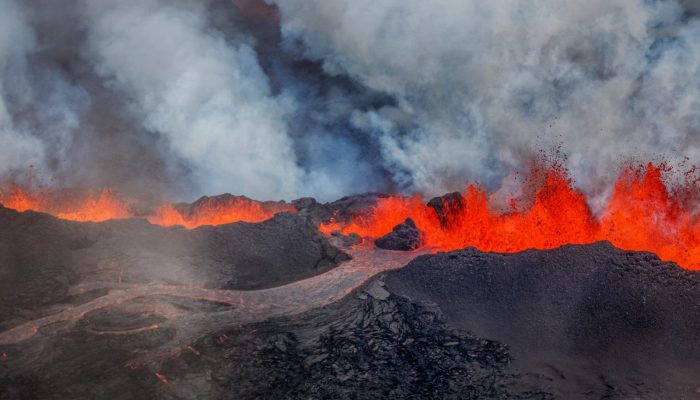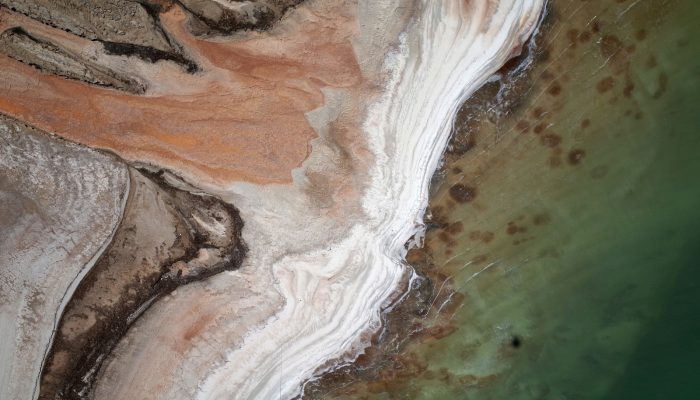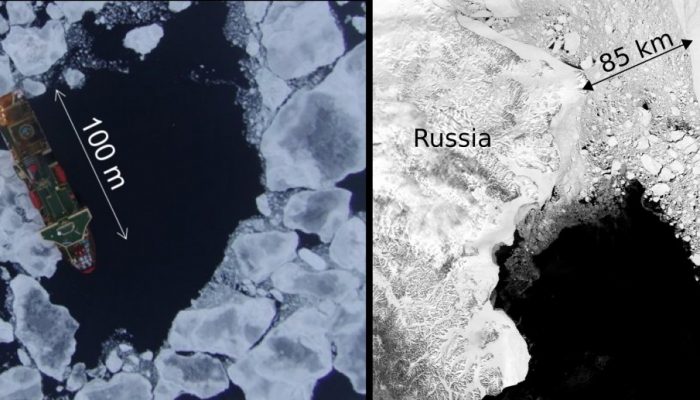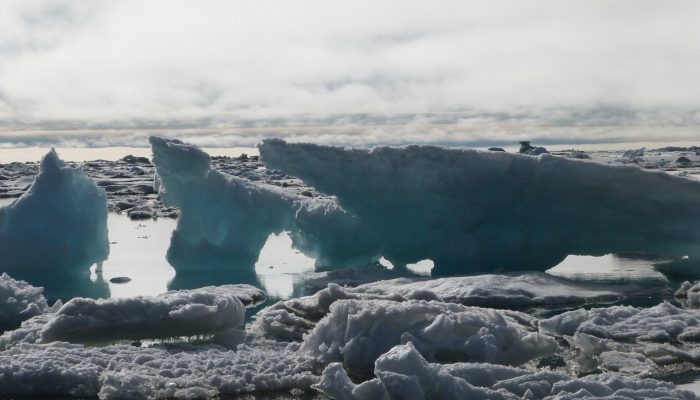If glaciers could speak, you might imagine them saying – “HELP!” The planet continues to warm and this means glaciers continue to shrink. Our new image of the week shows a glacier that appears to be making this point in a rather dramatic and gruesome way – it appears to be bleeding! If you went to the snout of Taylor Glacier in Antarctica’s Dry Valley region (see map ...[Read More]
If you didn't find what you was looking for try searching again.
Biogeosciences
Coffee break biogeosciences–high resolution δ18O record from bivalves
Much like trees, clam shells have growth rings. The chemistry of these rings can be used as a proxy for ocean chemistry. Recently, an international team of scientists used the growth rings found in shells of Arctica islandica to produce an annual absolutely dated marine δ18O record for the last millennium which was published in Nature Communications. The record represents the first fine scale arch ...[Read More]
Geology for Global Development
Friday Photo: Tensional cracks from Kaikoura earthquake
This photo was taken by Jack Williams from the University of Otago during mapping of the surface rupture from the recent Kaikoura earthquake. Birds eye view of tensional cracks in ground adjacent to fault trace.
GeoSphere
Photo of the Week – Salt Coral
The photo posted below is a really cool one. Interestingly, enough I have been getting into podcasts lately. They are great during my bus ride to and from work every day. One of the podcasts that I like is Neil de Grasse Tyson’s Star Talk Radio. Anyway, the other week Star Talk had a pretty good discussion about salt and the role it has played in developing human history. Check out the episo ...[Read More]
Tectonics and Structural Geology
Minds over Methods: studying dike propagation in the lab
Have you ever thought of using gelatin in the lab to simulate the brittle-elastic properties of the Earth’s crust? Stefano Urbani, PhD student at the university Roma Tre (Italy), uses it for his analogue experiments, in which he studies the controlling factors on dike propagation in the Earth’s crust. Although we share this topic with our sister division ‘Geochemistry, Mineralogy ...[Read More]
GeoLog
Imaggeo on Mondays: The shrinking of Earth’s saltiest lake
The Dead Sea is one of the saltiest lakes on Earth, located at the lowest point of the globe. For centuries it has been known for the restorative powers of its muds and waters. Their hypersalinity means it is possible to easily float on the lake’s surface. Bordering Israel, the West Bank and Jordan, it is a unique environment in an otherwise arid region. Changing climate, which is seeing tempera ...[Read More]
Cryospheric Sciences
Image of the Week – Sea Ice Floes!
The polar regions are covered by a thin sheet of sea ice – frozen water that forms out of the same ocean water it floats on. Often, portrayals of Earth’s sea ice cover show it as a great, white, sheet. Looking more closely, however reveals the sea ice cover to be a varied and jumbled collection of floating pieces of ice, known as floes. The distribution and size of these floes is vitally imp ...[Read More]
GeoLog
Geosciences Column: The complex links between shrinking sea ice and cloud cover
The global climate system is complex. It is composed of, and governed by, a plethora of interconnect factors. Solar radiation, land surface, ice cover, the atmosphere and living things, as well as wind and ocean currents, play a crucial role in the climate system. These factors are intricately connected; changes to some can have significant effects on others, leading to overall consequences for th ...[Read More]
Geology for Global Development
Friday Photo: Pressure ridges from the Kaikoura earthquake
This photo was taken by Jack Williams from the University of Otago during mapping of the surface rupture from the recent Kaikoura earthquake. It shows pressure ridges in road from subsidiary strand of Hundalee Fault. You can read more about his field work on yesterday’s blog.
Tectonics and Structural Geology
Introducing the people behind the TS division
This week we present the many volunteers behind the activities of the Tectonics and Structural Geology (TS) division. We can also be found on http://www.egu.eu/ts, Facebook and twitter. We are always happy to hear new ideas and feedback! Just drop a message on ts@egu.eu and don’t forget to stop by the division meeting during the General Assembly in April next year. Susanne Buiter – President ...[Read More]

